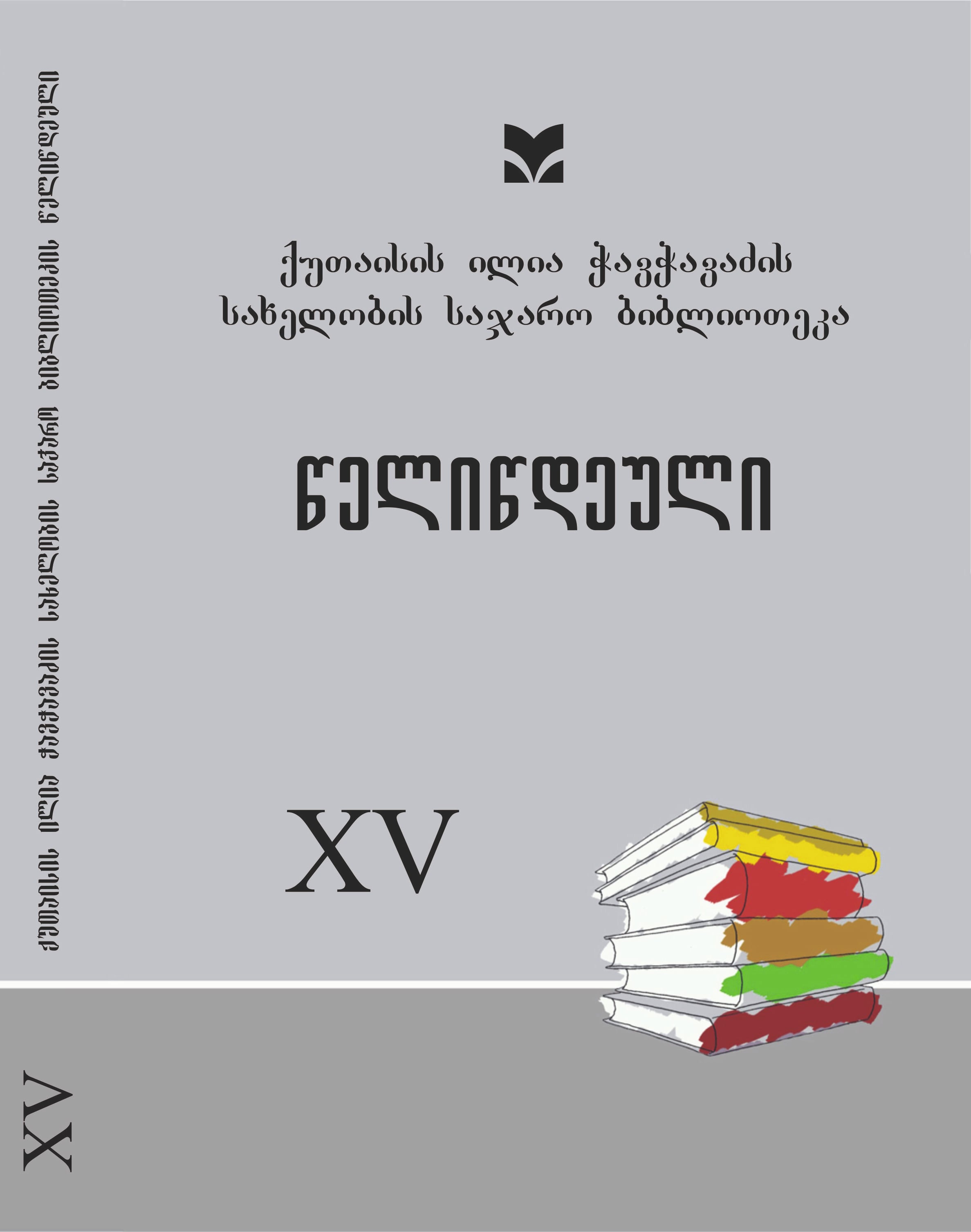In the first quarter of the 20th century, the Kutaisi press emphasized the necessity of protecting the ethnic and cultural identity of Georgians
DOI:
https://doi.org/10.61491/yk.15.2023.8057Keywords:
Kutaisi press of the first quarter of the 20th century, the issue of Georgian identityAbstract
Ethnic self-awareness is defined by ethnic culture and language. If an ethnic group loses its cultural specificity, it ceases to exist as an independent entity. This was the concern Georgian public figures had following the loss of statehood. Through the Georgian press, particularly from the early 20th century onward, they actively resisted Russification policies despite repression from Russian authorities. Newspapers in Kutaisi, despite censorship, aimed to educate the public on pressing issues threatening Georgian identity: the Georgian language, music, architectural samples, archaeological artifacts, and more. Articles in the Kutaisi press sought to make people understand and appreciate Georgian culture, fostering pride in its centuries-old history, which they believed essential for every Georgian and crucial for preserving Georgian identity. Cultural and educational organizations in Kutaisi played a pivotal role in promoting national self-awareness and instilling a sense of pride among Georgians. Through various initiatives, they helped Georgian society rediscover its cultural identity and assert its national consciousness.




